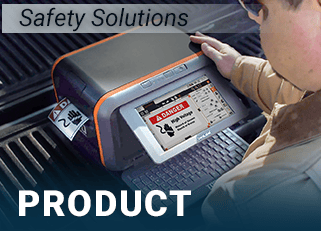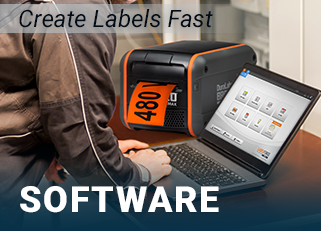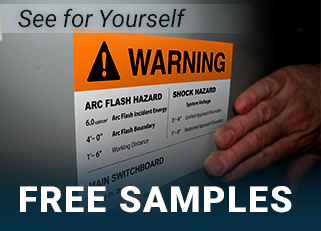What is OSHA Compliance?
03
February,
2023
5 MINUTE READ
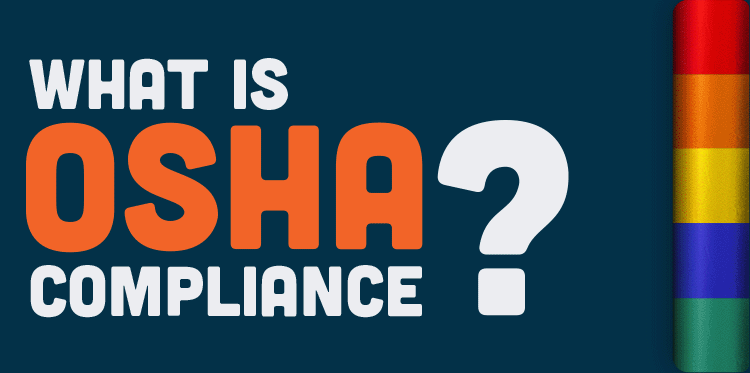
Dangerous working conditions nationwide sparked the creation of the Occupational Safety and Health Act (OSH Act) in 1970. The goal of the OSH Act is to protect workers from harm on the job.
President Richard Nixon signed the OSH Act into law, which led to the establishment of the Occupational Safety and Health Administration (OSHA) in 1971 as an agency within the United States Department of Labor. Fast forward 50 years, and the workforce has nearly doubled and injury and illness rates have been cut by more than half.
What Does OSHA Do?
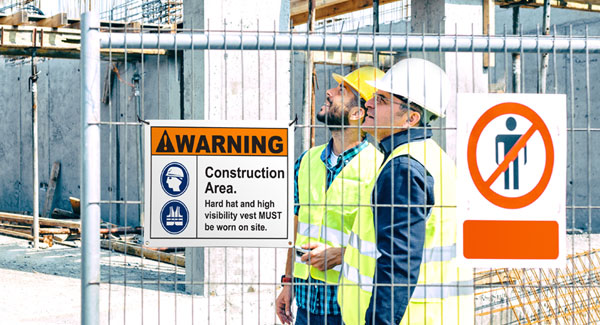
OSHA sets rules that serve as a baseline for safety and health protection in American workplaces. Its mission is to ensure all workers have safe working conditions by setting and enforcing standards. It also provides employers and employees with training, outreach, education, and assistance to take on safety challenges.
What are the OSHA Standards?
OSHA standards explain the minimum requirements for safety that employers must meet to protect their employees from workplace hazards, as authorized by Congress in the OSH Act. Most private-sector employers and their employees in all 50 states are covered under OSHA.
Individual states are encouraged to establish and administer their own health and job safety requirements. As of 2020, there are 22 of these State Plans. OSHA requires these plans to be at least as effective as OSHA in protecting workers and preventing work-related injuries, illnesses, and deaths.
OSHA's nationwide standards are found in Title 29 of the Code of Federal Regulations (CFR). While some sections of the regulations are for specific industries (such as construction and agriculture), most employers fall under OSHA's "general industry" rules in 29 CFR Part 1910.
In addition to the specific standards, every employer has a general duty to provide their employees with a hazard-free work environment, under OSHA's General Duty Clause. Managers need to know what rules apply to their industry, but also understand any additional steps that may be necessary to cover all the bases of workplace safety.
Who is not Covered by OSHA?
OSHA doesn't cover the self-employed, churches, federal and state governments, domestic service employers, farms with only immediate family members as employees, and businesses that are regulated by other Federal agencies, such as the Mine Safety and Health Administration (MSHA). Here's an overview of OSHA safety standards that will apply to most industries, grouped into general topics:
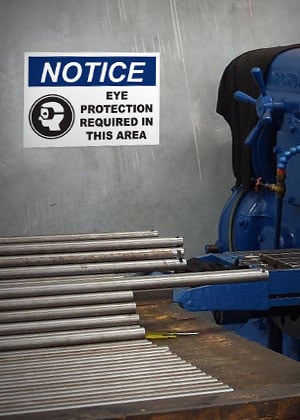
OSHA General Industry Standards
- Subpart G: Occupational Health and Environmental Control, including rules for ventilation and noise exposure. (1910.94-98)
- Subpart I: Personal Protective Equipment (PPE) (1910.132-140)
- Subpart J: General Environmental Controls, including rules for permit-required confined spaces and lockout/tagout (LO/TO) (1910.141-147)
- Subpart K: Medical and First Aid Requirements (1910.151-152)
- Subpart L: Fire Protection (1910.155-165)
- Subpart O: Machinery and Machine Guarding (1910.211-219)
Materials Handling, Traffic, and Fall Protection
- Subpart D: Walking and Working Surfaces, including rules for ladders (1910.21-30)
- Subpart E: Means of Egress, including rules for emergency plans (1910.33-39)
- Subpart F: Powered Platforms and Lifts (1910.66-68)
- Subpart N: Materials Handling and Storage, including rules for powered industrial trucks (such as forklifts) and cranes (1910.176-184)
Chemical Products and Processes
- Subpart H: Hazardous Materials, including specific requirements by material (1910.101-126)
- Subpart Z: Toxic and Hazardous Substances, including rules for specific materials, the general Hazard Communication Standard (HazCom 2012), and laboratory chemical safety rules (1910.1000-1450)
Specific Types of Work
- Subpart M: Compressed Gas and Compressed Air Equipment (1910.166-169)
- Subpart P: Portable Powered Tools and Other Hand-Held Equipment (1910.241-244)
- Subpart Q: Welding, Cutting, and Brazing (or Hot Work) (1910.251-255)
- Subpart S: Electrical Rules, including requirements for safe wiring, safe electrical work practices, and specific lockout/tagout (LO/TO) requirements for electrical equipment and circuits (1910.301-399)
Special Industries
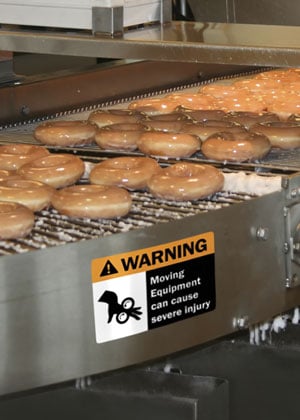
In addition to General Industry, OSHA has regulations for specific industries in 1910 Subpart R. They include:
- Pulp, paper, and paperboard mills (1910.261)
- Textiles (1910.262)
- Bakery equipment (1910.263)
- Laundry machinery and operations (1910.264)
- Sawmills (1910.265)
- Logging operations (1910.266)
- Telecommunications (1910.268)
- Electrical power generation, transmission, and distribution (1910.269)
- Grain handling facilities (1910.272)
A few major industries have entire sections of regulations, which they follow instead of the General Industry rules. These include:
- Shipyards, Marine Terminals, and Longshoring (29 CFR Parts 1915-1922)
- Construction (29 CFR Part 1926)
- Agriculture (29 CFR Part 1928)
OSHA Safety Plans
Employees and supervisors all need to know how to approach and control the hazards related to their day-to-day tasks. This is where a written safety plan can be a valuable training tool. There are specific workplace conditions, activities, and chemicals that require an OSHA Safety Plan, including:
- Hazard Communication (1910.1200(e)) requires a written chemical worker right-to-know safety plan
- HAZWOPER Safety and Health Plan (1910.120(b))
- Emergency Action Plan and Fire Prevention Plan (1910.38 & 1910.39)
- Bloodborne Pathogens Exposure Control Plan (1910.1030(c))
- Respiratory protection (1910.134(c))
- Hazardous energy control (lockout/tagout) (1910.147(c))
- Permit-required confined space plan (1910.146(c)(4))
To help, OSHA has sample safety and health programs to use as guidance for developing custom programs to tailor to specific workplaces.
How are Regulations Enforced?
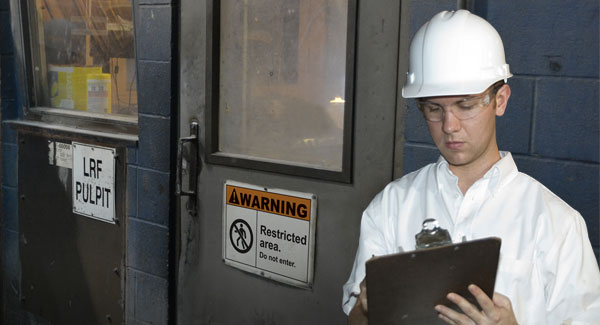
OSHA enforces its regulations and standards by conducting inspections. An OSHA inspector will take a walk through a facility to look for hazards and practices that might prevent the facility from operating safely. It would be impractical for OSHA to inspect every single workplace, so there are four priority levels for inspections:
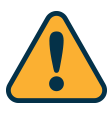 1. Imminent danger. If OSHA becomes aware of workplace conditions that could reasonably cause death or serious physical harm, an inspection will be made as soon as possible.
1. Imminent danger. If OSHA becomes aware of workplace conditions that could reasonably cause death or serious physical harm, an inspection will be made as soon as possible.
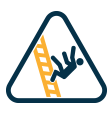 2. Severe injuries and illnesses. In response to an event that results in serious harm, OSHA will inspect the facility where the event occurred. This includes hospitalization of an employee, an amputation, or physical loss of an eye.
2. Severe injuries and illnesses. In response to an event that results in serious harm, OSHA will inspect the facility where the event occurred. This includes hospitalization of an employee, an amputation, or physical loss of an eye.
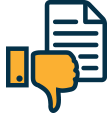 3. Complaints/referrals. When workers alert OSHA to a hazard in their workplace, these allegations are taken seriously. OSHA also follows up on referrals from other agencies, organizations, and individuals.
3. Complaints/referrals. When workers alert OSHA to a hazard in their workplace, these allegations are taken seriously. OSHA also follows up on referrals from other agencies, organizations, and individuals.
 4. Targeted inspections. OSHA's ordinarily scheduled inspections prioritize industries with a history of injuries and illnesses.
4. Targeted inspections. OSHA's ordinarily scheduled inspections prioritize industries with a history of injuries and illnesses.
If OSHA finds violations of its standards in one inspection, a follow-up inspection will often be scheduled to confirm that the employers have taken the necessary steps to improve safety.
OSHA also focuses its inspections on specific facilities with high injury rates, as part of its Site-Specific Targeting (SST) program, based on the injury and illness information employers submit to OSHA through the Injury Tracking Application. After an inspection, the compliance officers will review findings and decide if a citation is necessary.
Citations
Citations are made to address violations of OSHA standards and safety hazards that inspectors identify in their inspection. After an inspection, OSHA has six months to issue any citations, give deadlines for correcting hazards, and propose penalties.
Penalty amounts vary depending on the type of citation given by OSHA. If a citation is given, OSHA will provide instructions on how to respond by either paying the fine, appealing the citation, or formally contesting the citation or penalty. The best way to prevent a citation is to comply with OSHA standards.
Each year, OSHA shares its most cited standards in its top 10 most frequently cited regulations list. This list serves as a great reminder and tool for teams to reflect on ongoing workplace challenges and how to better manage them.
Improve Communication & Meet OSHA Requirements with Signs
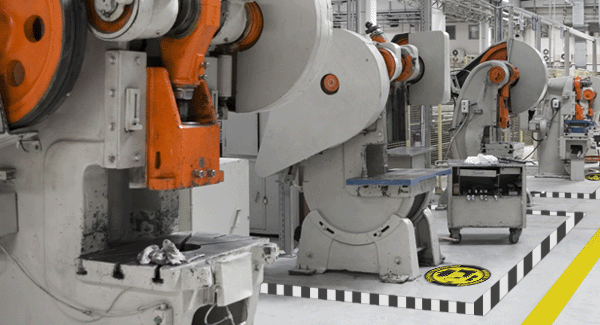
Signs play a significant role in workplace safety by providing important information where people need it most. OSHA has requirements for signs and tags that are made to identify hazards that could harm people or damage your property in 1910.145. This standard outlines sign design requirements and when to use safety signs.
All types of workplaces and industries can benefit from safety signs and other supporting visuals to improve workplace communication while meeting OSHA compliance. Facilities can order standardized premade safety signs to communicate general health and safety notices to meet broad needs or create custom OSHA safety signs to comply with the applicable standard using industrial printing systems and supplies.
Next Steps to OSHA Workplace Safety
OSHA offers an overall baseline for safety best practices to keep at the forefront of all types of operations. Staying on top of workplace safety remains a top priority industry-wide, especially as growth and demand increases, bringing new safety challenges. The best way to sustain a safe workplace is to follow OSHA safety standards and periodically review safety programs to update as necessary when new hazards appear or when work changes.
Managers can get useful strategies to help navigate health and safety obstacles in our Best Practice Guide for EHS Managers. Get tools and recommendations for implementing a successful occupational safety and health plan or injury and illness prevention program (IIPP) to reduce workplace injuries and achieve OSHA compliance.
RELATED RESOURCES

OSHA 29 CFR 1910
The Occupational Safety and Health Administration (OSHA) is a branch of the United States Department of Labor ...
Read
OSHA Safety Management Plan
What is an OSHA Safety Plan? An OSHA Safety Plan is a written plan that describes the potential hazards in ...
Read
OSHA Rules for Hazardous Chemicals
When dealing with hazardous chemicals, safety is key. However, the steps necessary to keep workers safe will ...
Read.png)
